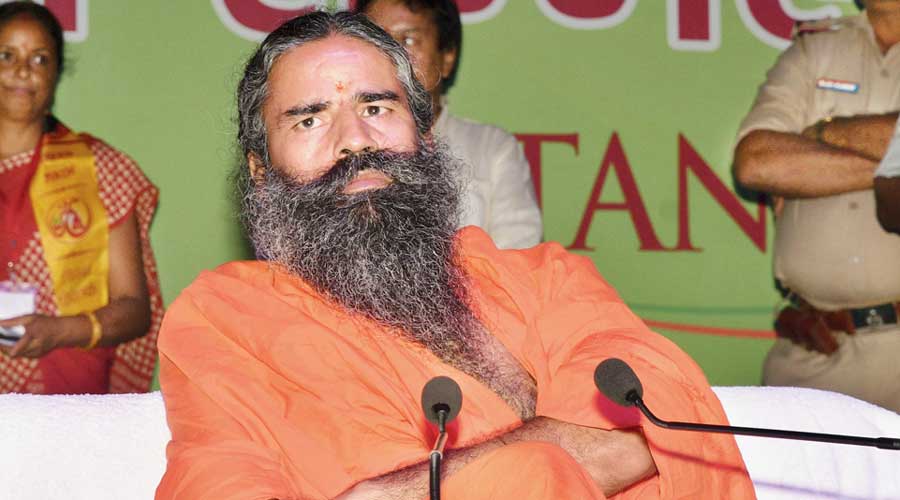The central ministry for traditional medicines has advised state authorities to “take necessary action” on complaints that Ramdev’s Patanjali Ayurved had allegedly promoted products for heart disease and liver disorders through illegal advertisements.
The ayush (ayurveda, yoga, unani, siddha, homoeopathy) ministry has sought the withdrawal of advertisements for certain Patanjali products — Lipidom, Livogrit and Livamrit — after receiving complaints that they contravene the Drugs and Magic Remedies Act (Objectionable Advertisements) 1954.
The ministry’s drug policy section has advised Uttarakhand authorities to “take necessary action” and submit an “action taken report”, according to documents obtained on Tuesday by one of the complainants, Kerala-based ophthalmologist K.V. Babu, through the Right to Information Act.
Babu had in February complained to the Centre’s apex drug authority that the Dehradun-based Patanjali had in advertisements claimed that Lipidom reduces cholesterol “in a week” and protects people from “heart problems and blood pressure”.
The advertisements violated the Drug and Magic Remedies Act’s Section 3, which prohibits the advertisement of any treatment for a range of health disorders, including “heart diseases” and “high or low blood pressure”, Babu wrote in his complaint.
The central drug regulatory authority forwarded the complaint to the ayush ministry’s drug policy section, which has said it was already looking into the advertisements for Lipidom that had been “brought to the notice of the ministry”.
The ayush ministry said the National Pharmacovigilance Centre had noticed advertisements for other Patanjali products and the ministry had issued similar directives to state licensing authorities in Karnataka and Rajasthan.
Patanjali had advertised Livogrit and Livamrit as “evidence-based medicines” for “instant benefit in problems related to fatty liver, liver cirrhosis, and the digestive system”.
The Drugs and Magic Remedies Act prohibits advertisements for the treatment for liver disorders.
“Whether there is adequate evidence that these drugs are effective as claimed is another issue and may be debated, but the advertisements are illegal and appear intended to influence purchase decisions by the public,” Babu said on Wednesday. The advertisements appeared in newspapers in several cities, he said.
A query sent by this newspaper to Patanjali Ayurved seeking its perspective on the advertisements and asking whether the advertisements have been withdrawn has not evoked a response.
India’s medical community had last year accused Patanjali Ayurved of attempting to mislead the public by claiming that a herbal cocktail it had released was “the first evidence-based medicine for Covid-19”.
No action was taken because Covid-19 – a recent infection – was not on the list of diseases for which remedies cannot be advertised.
Office-bearers of the Indian Medical Association, the country’s largest body of doctors, have often asserted that modern medical practitioners are not opposed to ayurveda but the traditional medical formulations should be backed by adequate evidence and should not breach the country’s laws.


